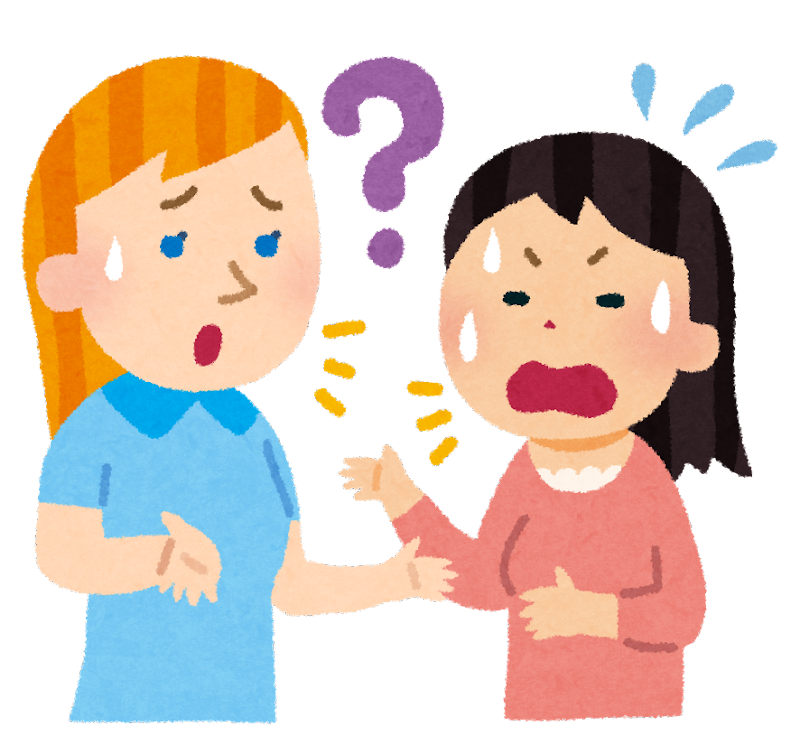コラム|嬉野市の【けんさん英語塾】で現地で使える英語力・英会話を身につけましょう!家庭教師としてご自宅や指定場所へお伺いする事も可能です。
コラム
-

- どうすれば緊張せずに英語で話せるの?
- 仕事で英語を話すことが増えてきました。<div><div>実際に対面で話すとなると緊張してしまい、うまく思ったことが伝えられないなんて経験をされたことはないでしょうか。ましてや英語でそれをするとなるとますますもって難しいことです。</div></div><div><br></div><div>しかし、英語で伝えようとする練習を事前にしておくといざ対面で話す時にいくらか緊張を和らげスムーズにやり取りができるようになります。</div><div><br></div><div>それでは具体的にどのような備えができるでしょうか。コミュニケーションは反復練習を通して獲得できるスキルです。ですから以下のことに是非挑戦してみてください。</div><div><br></div><div>実務的な内容であれば事前に準備ができます。AIを使い会話を実際に生成してやり取りを想像してみるのはお勧めです。</div><div><br></div><div>専門用語が出てくるのであればその言葉の意味を理解しておきましょう。特に仕事で英語を使う場合はそれだけでも会話の理解が進みます。</div><div><br></div><div>自分の伝えたいメッセージを簡潔にし、使用する文章の構造も明確なものにしましょう。長い文章や、複雑な構文はあえて使う必要がありません。相手に伝わることが最も大切なことです。</div><div><br></div><div>最後にコミュニケーションを取るうえで大切なことは自信を持つことです。しかしその自信は日々の練習からしか得られないものです。ですから、英語を話す練習、リスニング、そして英語の環境にできるだけ身を置くということを続けてみてください。</div>
-

- 長文読解のコツ:「訳す」から「理解する」へ
- <strong></strong><p><strong>長文読解のコツ:「訳す」から「理解する」へ</strong></p>
<p>長文読解の授業でよく見かけるのは、英文を一文ずつ丁寧に訳そうとする姿です。もちろん、訳す力は大切ですが、試験や模試では時間との勝負。すべての文を訳していたら、最後まで読み切れずに終わってしまうこともあります。</p>
<p>そこで、これからは「訳す」習慣から「理解する」読解法へと意識を切り替えていきましょう。英文を日本語に直すのではなく、英語のまま意味をつかむ力を育てることが、速読と正確な理解につながります。</p>
<p>🧠 <strong>そのために、次の3つのポイントを意識してみてください</strong></p><p><strong></strong><strong>1) 文構造をざっくり把握するクセをつける</strong></p><p><strong></strong>すべての単語を訳す必要はありません。主語・動詞・目的語など、文の骨格を見抜くことで、文の大意がつかめます。まずは「誰が何をしたか」を素早く見つける練習をしましょう。 </p><p><strong><br></strong></p><p><strong>2) 知らない単語でも止まらない勇気を持つ</strong></p><p><strong></strong>長文には必ず知らない単語が出てきます。でも、文脈から意味を推測できることが多いです。辞書に頼らず、前後の流れから「なんとなくこういう意味かな」と考える力を鍛えましょう。 </p><p><strong><br></strong></p><p><strong>3) 段落ごとに要点をつかむ練習をする</strong></p><p><strong></strong>文章全体を読む前に、各段落の主題や筆者の意図をつかむことが大切です。段落の最初や最後の文に注目し、「この段落は何を言いたいのか?」を考える習慣をつけましょう。 </p><p>この3つを意識することで、英文を「訳す」から「理解する」読解へと自然に移行できます。最初は難しく感じるかもしれませんが、慣れてくると読むスピードも理解力も格段に上がります。焦らず、少しずつ身につけていきましょう。<br></p><p><br></p><p>それでは演習問題を用意しましたので挑戦してみてください。</p><p><strong><br></strong></p><p><strong>Practice Reading Passage: "The Power of Questions"</strong></p><strong></strong>
<p>Have you ever wondered why some people seem to learn faster than others? One key reason is that they ask more questions. Curious minds are constantly seeking to understand the world around them. Instead of passively accepting information, they challenge ideas, explore alternatives, and dig deeper. This habit helps them build stronger connections between concepts and remember information more effectively.</p>
<p>Of course, asking questions isn’t always easy. Some students worry that their questions might sound silly or that others will judge them. But in reality, asking questions shows courage and a desire to learn. Teachers often appreciate students who are willing to speak up, because it shows they are engaged and thinking critically.</p>
<p>To become a better learner, try to make questioning a regular part of your study routine. When you read a passage, pause and ask yourself: “What is the main point here?” or “Why did the author include this example?” These small habits can lead to big improvements in your understanding and confidence.</p>
<p><br></p> <p>Answer the following questions in English:</p><ol><li>What is one reason why some people learn faster than others?</li>
<li>Why do some students hesitate to ask questions?</li>
<li>According to the passage, how can asking questions help students?</li>
<li>What are two example questions students can ask themselves while reading?</li>
<li>What is the main message of the passage?</li></ol>
-

- 英語学習は習慣化して初めて力になる
- <h2>英語学習は習慣化してこそ力となる </h2><div><br></div><div>英語学習は習慣化することです。よく言われることですが英語学習では特に毎日20分でも10分で<wbr>も構わないので習慣化してやり続けることが大切なんです。<wbr>そして、<wbr>学びのプロセスは同じでひたすら同じプロセスを繰り返していきま<wbr>す。そのプロセスとは下記の通りです。</div><div><br></div><div> ① インプット(Input)まずは大量の「理解できる言語」を浴びることから始まります。 例:相手の会話、映画、音楽、テキストなど。 ポイント: • 完全な理解は不要 • “理解可能インプット(Comprehensible Input)” が最も効果的(Krashen理論)</div><div><br></div><div> ② 理解(Intake) インプットの中で、脳が意味のある情報と判断したものが「<wbr>取り込まれる」。 ここでパターンや文法、単語の使い方を無意識に吸収する。</div><div><br></div><div> ③ 沈黙期(Silent Period) 聞けるけど、まだ話せない時期。 赤ちゃんが最初の1〜2年ほとんど話さないのと同じ。 ※英語学習者にも普通に起こる。 </div><div><br></div><div>④ アウトプット(Output) 聞いて理解したことを、徐々に「話す・書く」<wbr>ことで出せるようになる段階。 特徴: • 文法ミスが多くて当然 • 話すことで脳がさらに言語構造を整理していく(Swain)</div><div><br></div><div> ⑤ フィードバック(Feedback) 相手からの返答、訂正、意味交渉によって言語が洗練される段階。 例: 「It make me refresh?」→「It makes me feel refreshed.」のような訂正。 </div><div><br></div><div>⑥ 自動化(Fluency) 語彙・文法を意識せず、反射的に使えるようになる最終段階。 特徴: • 文法を考えない • 英語を英語で処理する • ネイティブスピードでも理解可能 </div><div><br></div><div>インプットばかりの学習からアウトプットも組み合わせた学習に取<wbr>り組むことができれば大きく飛躍できます。<wbr>あとはフィードバックをもらえる練習相手をどうするかですが、ネイティブの人がいれば良いですが、いない場合が殆どです。そこでChatGPTを使うと良いと思います。ChatGPTと話す練習をしたり、エッセイの添削をしてもらうなど有効に活用してください。</div>
-

- 本当に効果のある英語学習アドバイス
- <div><div><div><div jslog="20277; u014N:xr6bB; 1:WyIjdGhyZWFkLWE6ci00MTI2NDU3ODQ1NTI5MjE2Nzc1Il0.; 4:WyIjbXNnLWE6ci03MjkwMDE1NDk5MTIxMzMxNzE2IixudWxsLG51bGwsbnVsbCwxLDAsWzEsMCwwXSw5MCw4MjEsbnVsbCxudWxsLG51bGwsbnVsbCxudWxsLDEsbnVsbCxudWxsLG51bGwsbnVsbCxudWxsLG51bGwsbnVsbCxudWxsLG51bGwsMCwwXQ.."><div><div dir="auto"><h1>本当に効果のある英語学習アドバイス</h1><br><br><h2 dir="auto"><br></h2><h2>1. “理解” より先に “口に出す” を優先する</h2><br><p><br></p><p>多くの日本人が「読める・聞けるけど話せない」状態になりがち。</p><p>原因は インプットばかりでアウトプット不足。</p><p><br></p><p>具体的に:</p><br><ul><li><p>毎日3〜5分でいいから英語で独り言</p></li><li><p>聞いたフレーズをそのままマネする(シャドーイング)</p></li><li><p>ChatGPTに英会話をゆっくりペースで練習してもらうことも<wbr>可</p></li></ul><br><p><br></p><p>あなたは「ゆっくり話す英会話」を希望してたので、<wbr>これは特に効果的。</p><br><h2 dir="auto"><br></h2><h2>2. 文法は“使うため”に覚える</h2><br><p><br></p><p>文法書を読む → 頭でわかる</p><p>→ 使えないまま終わる、の繰り返しになりやすい。</p><p><br></p><p>文法は 例文ごと暗記して使って覚える のが最短。</p><p><br></p><p>例:</p><p>“I’m supposed to 〜”</p><p>→ 「〜することになっている」</p><p>→ これを使って3つ文を作って口に出す。</p><br><h2 dir="auto"><br></h2><h2>3. 発音は最初に少しだけ練習すると伸びるスピードが激変する</h2><br><p><br></p><p>日本人が苦手な音だけやっておくと効果抜群:</p><br><ul><li><p>th(θ / ð)</p></li><li><p>r と l</p></li><li><p>v と b</p></li><li><p>英語の強弱(リズム)</p></li></ul><br><p><br></p><p>1日10分でも大きく変わる。</p><p>英語は 発音がわかるとリスニングも一気に伸びる。</p><br><h2 dir="auto"><br></h2><h2>4. リスニングは「聞こえない音」を知ると伸びる</h2><br><p><br></p><p>英語は単語が滑ってつながる(リンキング/リダクション)ので、</p><p>書いてあるまま読まないことが多い。</p><p><br></p><p>例:</p><br><ul><li><p>want to → wanna</p></li><li><p>going to → gonna</p></li><li><p>you and I → you’n I</p></li></ul><br><p><br></p><p>これを知るだけでリスニングのストレスが激減。</p><br><h2 dir="auto"><br></h2><h2>5. 完璧を目指さない方が早く上達する</h2><br><p><br></p><p>「間違えたら恥ずかしい」と思って話すのをやめると、<wbr>成長がストップする。</p><p>言語は 70%の正確さでどんどん使う方が早い。</p><p><br></p><p dir="auto">間違いながら覚えるのが正しいルート。</p><p dir="auto"><br></p><h2>6. 英語は“毎日ちょっと”の習慣が勝つ</h2><br><p><br></p><p>1日30分 × 365日</p><p>→ 1年後に 182時間分の英語 を触ることになる。</p><p><br></p><p>筋トレと同じで、</p><p>短くていいから毎日 が最強。</p></div></div></div></div></div></div>
-

- 共通テストまであと2か月でできる対策
- <h2 start="129" end="150">受験生へのアドバイス</h2>
<p start="151" end="203">もし「共通テストまであと2ヶ月、得点を上げるために何をするのが効果的か」と聞かれたら、私はこう伝えます。</p>
<blockquote start="205" end="400">
<p start="207" end="400">共通テスト直前の2ヶ月は<strong start="219" end="245">リスニングを絶対におろそかにしないでください</strong>。<br start="246" end="249">
リスニングは比較的取りやすく、毎日継続して対策すれば短期間で得点が伸びやすい分野です。過去の平均点を見ると、リスニングの得点がリーディングを上回る年もあります。したがって、2ヶ月を毎日リスニングに割いて集中的に鍛えることで、同じ時間をリーディングに使うよりも合計得点が上がる可能性が高いと考えます。</p>
</blockquote>
<h3 start="402" end="423">具体的な理由:</h3><p><span style="font-weight:normal">リスニングは「慣れ」が効く科目。毎日音声に触れるだけで理解しやすくなる。</span></p><p><span style="font-weight:normal">出題パターンが比較的安定している(会話・説明・図表説明など)。出題形式に慣れておくと得点源にしやすい。</span></p><p><span style="font-weight:normal">直前期は新しい長文を詰め込むより「確実に取れる問題」を増やす方が点に結びつきやすい。</span></p><p><span style="font-weight:normal"><br></span></p>
<hr start="570" end="573">
<h2 start="575" end="598">2ヶ月プラン(実行しやすい日常メニュー)</h2>
<p start="599" end="635">下は「毎日実行できる」具体案です。無理のない量で習慣化するのがポイント。</p>
<p start="637" end="650"><strong start="637" end="650">毎日(平日・休日)</strong></p>
<ul start="651" end="786">
<li start="651" end="694">
<p start="653" end="694">朝 20–30分:シャドーイング or 朝の英語音声(スクリプトを見ずに聞く)</p>
</li>
<li start="695" end="740">
<p start="697" end="740">学校/昼休み 10–15分:短めのリスニング問題を1セット(過去問や予備校の演習)</p>
</li>
<li start="741" end="786">
<p start="743" end="786">夜 30–45分:過去問のリスニングパートを1回分(解答→スクリプト確認→間違い分析)</p>
</li>
</ul>
<p start="788" end="795"><strong start="788" end="795">週2回</strong></p>
<ul start="796" end="827">
<li start="796" end="827">
<p start="798" end="827">ディクテーション(30分)+語彙/フレーズの復習(20分)</p>
</li>
</ul>
<p start="829" end="836"><strong start="829" end="836">週1回</strong></p>
<ul start="837" end="894">
<li start="837" end="894">
<p start="839" end="894">本番形式で「英語(リーディング+リスニング)を通しで」実施(時間配分を確認)。間違いの傾向をノートにまとめる。</p>
</li>
</ul>
<p start="896" end="906"><strong start="896" end="906">最後の2週間</strong></p>
<ul start="907" end="963">
<li start="907" end="963">
<p start="909" end="963">模試または過去問の通し演習を増やし、時間感覚と集中力を磨く。リスニングの音量やイヤホンの感覚にも慣れておく。</p>
</li>
</ul>
<hr start="965" end="968">
<h2><strong>リスニングの効果を最大化する練習法</strong></h2><p>1 過去問のリスニング(本番に最も近い → 最重要)</p><p>2 シャドーイング(発音・リズムを真似る)</p><p>3 ディクテーション(聞き間違いを可視化)</p><p>4 要点メモ練習(図表説明や会話のキーワードを素早くメモ)</p><p>5 速度・アクサント慣れ(さまざまな話者の音声に触れる)</p><p><br></p>
<p start="1163" end="1281">注意:リスニングに集中するのは有効ですが、<strong start="1184" end="1236">長文の速読力や語彙が極端に不足している場合は最低限のリーディング対策(語彙・文法の穴埋め)も必須</strong>です。バランスは「リスニング7:リーディング3」程度を目安に、弱点次第で調整してください。</p>
<hr start="1283" end="1286">
<h2 start="1288" end="1329">過去5年(2021〜2025)の平均点(英語:リーディング/リスニング)と差</h2>
<p start="1330" end="1401">下は大学入試センター(DNC)など公的データをもとにした年別平均(100点満点・小数点第2位まで)と「リスニング − リーディング」の差です。</p>
<div><div tabindex="-1"><table start="1403" end="2092"><thead start="1403" end="1479"><tr start="1403" end="1479"><th start="1403" end="1413">年度(実施年)</th><th start="1413" end="1436">英語(リーディング)平均(100点満点)</th><th start="1436" end="1458">英語(リスニング)平均(100点満点)</th><th start="1458" end="1479">リスニング − リーディング(点)</th></tr></thead><tbody start="1502" end="2092"><tr start="1502" end="1619"><td start="1502" end="1516">2021(令和3年度)</td><td start="1516" end="1563">58.80<a href="https://www.dnc.ac.jp/albums/abm.php?d=72&f=abm00001452.pdf&utm_source=chatgpt.com" target="_blank" rel="noopener" alt="https://www.dnc.ac.jp/albums/abm.php?d=72&f=abm00001452.pdf&utm_source=chatgpt.com"></a></td><td start="1563" end="1610">56.16<a href="https://www.dnc.ac.jp/albums/abm.php?d=72&f=abm00001452.pdf&utm_source=chatgpt.com" target="_blank" rel="noopener" alt="https://www.dnc.ac.jp/albums/abm.php?d=72&f=abm00001452.pdf&utm_source=chatgpt.com"></a></td><td start="1610" end="1619">−2.64</td></tr><tr start="1620" end="1737"><td start="1620" end="1634">2022(令和4年度)</td><td start="1634" end="1681">61.80</td><td start="1681" end="1728">59.45<a href="https://www.dnc.ac.jp/albums/abm.php?d=58&f=abm00000702.pdf&n=%E4%BB%A4%E5%92%8C%EF%BC%94%E5%B9%B4%E5%BA%A6%E5%A4%A7%E5%AD%A6%E5%85%A5%E5%AD%A6%E5%85%B1%E9%80%9A%E3%83%86%E3%82%B9%E3%83%88%E5%AE%9F%E6%96%BD%E7%B5%90%E6%9E%9C%E3%81%AE%E6%A6%82%E8%A6%81.pdf&utm_source=chatgpt.com" target="_blank" rel="noopener" alt="https://www.dnc.ac.jp/albums/abm.php?d=58&f=abm00000702.pdf&n=%E4%BB%A4%E5%92%8C%EF%BC%94%E5%B9%B4%E5%BA%A6%E5%A4%A7%E5%AD%A6%E5%85%A5%E5%AD%A6%E5%85%B1%E9%80%9A%E3%83%86%E3%82%B9%E3%83%88%E5%AE%9F%E6%96%BD%E7%B5%90%E6%9E%9C%E3%81%AE%E6%A6%82%E8%A6%81.pdf&utm_source=chatgpt.com"></a></td><td start="1728" end="1737">−2.35</td></tr><tr start="1738" end="1855"><td start="1738" end="1752">2023(令和5年度)</td><td start="1752" end="1799">53.81<a href="https://www.dnc.ac.jp/albums/abm.php?d=491&f=abm00003839.pdf&n=%E4%BB%A4%E5%92%8C%EF%BC%95%E5%B9%B4%E5%BA%A6%E5%A4%A7%E5%AD%A6%E5%85%A5%E5%AD%A6%E5%85%B1%E9%80%9A%E3%83%86%E3%82%B9%E3%83%88%E5%AE%9F%E6%96%BD%E7%B5%90%E6%9E%9C%E3%81%AE%E6%A6%82%E8%A6%81.pdf&utm_source=chatgpt.com" target="_blank" rel="noopener" alt="https://www.dnc.ac.jp/albums/abm.php?d=491&f=abm00003839.pdf&n=%E4%BB%A4%E5%92%8C%EF%BC%95%E5%B9%B4%E5%BA%A6%E5%A4%A7%E5%AD%A6%E5%85%A5%E5%AD%A6%E5%85%B1%E9%80%9A%E3%83%86%E3%82%B9%E3%83%88%E5%AE%9F%E6%96%BD%E7%B5%90%E6%9E%9C%E3%81%AE%E6%A6%82%E8%A6%81.pdf&utm_source=chatgpt.com"></a></td><td start="1799" end="1846">62.35<a href="https://www.dnc.ac.jp/albums/abm.php?d=491&f=abm00003839.pdf&n=%E4%BB%A4%E5%92%8C%EF%BC%95%E5%B9%B4%E5%BA%A6%E5%A4%A7%E5%AD%A6%E5%85%A5%E5%AD%A6%E5%85%B1%E9%80%9A%E3%83%86%E3%82%B9%E3%83%88%E5%AE%9F%E6%96%BD%E7%B5%90%E6%9E%9C%E3%81%AE%E6%A6%82%E8%A6%81.pdf&utm_source=chatgpt.com" target="_blank" rel="noopener" alt="https://www.dnc.ac.jp/albums/abm.php?d=491&f=abm00003839.pdf&n=%E4%BB%A4%E5%92%8C%EF%BC%95%E5%B9%B4%E5%BA%A6%E5%A4%A7%E5%AD%A6%E5%85%A5%E5%AD%A6%E5%85%B1%E9%80%9A%E3%83%86%E3%82%B9%E3%83%88%E5%AE%9F%E6%96%BD%E7%B5%90%E6%9E%9C%E3%81%AE%E6%A6%82%E8%A6%81.pdf&utm_source=chatgpt.com"></a></td><td start="1846" end="1855">+8.54</td></tr><tr start="1856" end="1974"><td start="1856" end="1870">2024(令和6年度)</td><td start="1870" end="1917">51.54<a href="https://www.dnc.ac.jp/news/albums/abm.php?d=336&f=abm00004368.pdf&n=%E5%A0%B1%E9%81%93%E7%99%BA%E8%A1%A8_%E4%BB%A4%E5%92%8C%EF%BC%96%E5%B9%B4%E5%BA%A6%E5%A4%A7%E5%AD%A6%E5%85%A5%E5%AD%A6%E5%85%B1%E9%80%9A%E3%83%86%E3%82%B9%E3%83%88_%E5%AE%9F%E6%96%BD%E7%B5%90%E6%9E%9C%E3%81%AE%E6%A6%82%E8%A6%81.pdf&utm_source=chatgpt.com" target="_blank" rel="noopener" alt="https://www.dnc.ac.jp/news/albums/abm.php?d=336&f=abm00004368.pdf&n=%E5%A0%B1%E9%81%93%E7%99%BA%E8%A1%A8_%E4%BB%A4%E5%92%8C%EF%BC%96%E5%B9%B4%E5%BA%A6%E5%A4%A7%E5%AD%A6%E5%85%A5%E5%AD%A6%E5%85%B1%E9%80%9A%E3%83%86%E3%82%B9%E3%83%88_%E5%AE%9F%E6%96%BD%E7%B5%90%E6%9E%9C%E3%81%AE%E6%A6%82%E8%A6%81.pdf&utm_source=chatgpt.com"></a></td><td start="1917" end="1964">67.24<br><a href="https://www.dnc.ac.jp/news/albums/abm.php?d=336&f=abm00004368.pdf&n=%E5%A0%B1%E9%81%93%E7%99%BA%E8%A1%A8_%E4%BB%A4%E5%92%8C%EF%BC%96%E5%B9%B4%E5%BA%A6%E5%A4%A7%E5%AD%A6%E5%85%A5%E5%AD%A6%E5%85%B1%E9%80%9A%E3%83%86%E3%82%B9%E3%83%88_%E5%AE%9F%E6%96%BD%E7%B5%90%E6%9E%9C%E3%81%AE%E6%A6%82%E8%A6%81.pdf&utm_source=chatgpt.com" target="_blank" rel="noopener" alt="https://www.dnc.ac.jp/news/albums/abm.php?d=336&f=abm00004368.pdf&n=%E5%A0%B1%E9%81%93%E7%99%BA%E8%A1%A8_%E4%BB%A4%E5%92%8C%EF%BC%96%E5%B9%B4%E5%BA%A6%E5%A4%A7%E5%AD%A6%E5%85%A5%E5%AD%A6%E5%85%B1%E9%80%9A%E3%83%86%E3%82%B9%E3%83%88_%E5%AE%9F%E6%96%BD%E7%B5%90%E6%9E%9C%E3%81%AE%E6%A6%82%E8%A6%81.pdf&utm_source=chatgpt.com"></a></td><td start="1964" end="1974">+15.70</td></tr><tr start="1975" end="2092"><td start="1975" end="1989">2025(令和7年度)</td><td start="1989" end="2036">57.69<a href="https://www.dnc.ac.jp/news/albums/abm.php?d=430&f=abm00005260.pdf&n=%E5%A0%B1%E9%81%93%E7%99%BA%E8%A1%A8%E8%B3%87%E6%96%99%EF%BC%88%E4%BB%A4%E5%92%8C%EF%BC%97%E5%B9%B4%E5%BA%A6%E5%A4%A7%E5%AD%A6%E5%85%A5%E5%AD%A6%E5%85%B1%E9%80%9A%E3%83%86%E3%82%B9%E3%83%88_%E5%AE%9F%E6%96%BD%E7%B5%90%E6%9E%9C%E3%81%AE%E6%A6%82%E8%A6%81%EF%BC%89.pdf&utm_source=chatgpt.com" target="_blank" rel="noopener" alt="https://www.dnc.ac.jp/news/albums/abm.php?d=430&f=abm00005260.pdf&n=%E5%A0%B1%E9%81%93%E7%99%BA%E8%A1%A8%E8%B3%87%E6%96%99%EF%BC%88%E4%BB%A4%E5%92%8C%EF%BC%97%E5%B9%B4%E5%BA%A6%E5%A4%A7%E5%AD%A6%E5%85%A5%E5%AD%A6%E5%85%B1%E9%80%9A%E3%83%86%E3%82%B9%E3%83%88_%E5%AE%9F%E6%96%BD%E7%B5%90%E6%9E%9C%E3%81%AE%E6%A6%82%E8%A6%81%EF%BC%89.pdf&utm_source=chatgpt.com"></a></td><td start="2036" end="2083">61.31</td><td start="2083" end="2092">+3.62</td></tr></tbody></table></div></div>
<p start="2094" end="2190">(出典:大学入試センター/実施結果概要 各年度の平均点表。上表は各年度の「平均点等一覧」を参照してまとめました。)<a href="https://www.dnc.ac.jp/albums/abm.php?d=72&f=abm00001452.pdf&utm_source=chatgpt.com" target="_blank" rel="noopener" alt="https://www.dnc.ac.jp/albums/abm.php?d=72&f=abm00001452.pdf&utm_source=chatgpt.com">デジタルネイティブカレッジ+4デジタルネイティブカレッジ+4デジタルネイティブカレッジ+4</a></p>
<h3 start="2192" end="2213">データから読み取れること(簡単に)</h3>
<ul start="2214" end="2414">
<li start="2214" end="2414">
<p start="2216" end="2414">2021〜2022は<strong start="2226" end="2243">リーディングがやや上回る年</strong>だったが、<strong start="2248" end="2278">2023〜2025ではリスニングの平均が高い年が多い</strong>。とくに2024年はリスニングが大きく上回っている。実際の年によって「どちらが得点しやすいか」は変動しますが、近年はリスニングが強い年があるため、直前対策としてリスニングを固める価値は高いです。<a href="https://www.dnc.ac.jp/news/albums/abm.php?d=336&f=abm00004368.pdf&n=%E5%A0%B1%E9%81%93%E7%99%BA%E8%A1%A8_%E4%BB%A4%E5%92%8C%EF%BC%96%E5%B9%B4%E5%BA%A6%E5%A4%A7%E5%AD%A6%E5%85%A5%E5%AD%A6%E5%85%B1%E9%80%9A%E3%83%86%E3%82%B9%E3%83%88_%E5%AE%9F%E6%96%BD%E7%B5%90%E6%9E%9C%E3%81%AE%E6%A6%82%E8%A6%81.pdf&utm_source=chatgpt.com" target="_blank" rel="noopener" alt="https://www.dnc.ac.jp/news/albums/abm.php?d=336&f=abm00004368.pdf&n=%E5%A0%B1%E9%81%93%E7%99%BA%E8%A1%A8_%E4%BB%A4%E5%92%8C%EF%BC%96%E5%B9%B4%E5%BA%A6%E5%A4%A7%E5%AD%A6%E5%85%A5%E5%AD%A6%E5%85%B1%E9%80%9A%E3%83%86%E3%82%B9%E3%83%88_%E5%AE%9F%E6%96%BD%E7%B5%90%E6%9E%9C%E3%81%AE%E6%A6%82%E8%A6%81.pdf&utm_source=chatgpt.com">デジタルネイティブカレッジ+1</a></p>
</li>
</ul>
<hr start="2416" end="2419">
<h2 start="2421" end="2433">最後に(短い結論)</h2>
<ul start="2434" end="2608">
<li start="2434" end="2551">
<p start="2436" end="2551"><strong start="2436" end="2489">結論:直前2ヶ月で“確実に取れる点”を増やしたいなら、毎日リスニングを続けることは非常に有効です。</strong> ただし単に聞くだけでなく「過去問+シャドーイング+ディクテーション+模試での通し演習」を組み合わせて実行してください。</p></li></ul>
-

- of 抽象名詞の役割解説
- <h2 start="136" end="169">① 基本の働き:「性質・特徴」を表す(=形容詞の働き)</h2>
<h3 start="171" end="181">🔹構造</h3>
<blockquote start="182" end="200">
<p start="184" end="200">名詞 + of + 抽象名詞</p>
</blockquote>
<p start="202" end="287">この形で、「〜という性質を持つ」「〜が感じられる」といった<strong start="231" end="241">形容詞的意味</strong>を作ります。<br start="247" end="250">
つまり、「of+抽象名詞」は前の名詞を**説明(修飾)**しています。</p>
<hr start="289" end="292">
<h3 start="294" end="302">🔸例文</h3>
<div><div tabindex="-1"><table start="303" end="553"><thead start="303" end="319"><tr start="303" end="319"><th start="303" end="308">英文</th><th start="308" end="313">意味</th><th start="313" end="319">働き</th></tr></thead><tbody start="334" end="553"><tr start="334" end="387"><td start="334" end="357">a man <strong start="342" end="356">of courage</strong></td><td start="357" end="366">勇気のある男</td><td start="366" end="387">「of courage」=形容詞句</td></tr><tr start="388" end="442"><td start="388" end="412">a woman <strong start="398" end="411">of wisdom</strong></td><td start="412" end="422">知恵のある女性</td><td start="422" end="442">「of wisdom」=形容詞句</td></tr><tr start="443" end="495"><td start="443" end="467">a story <strong start="453" end="466">of beauty</strong></td><td start="467" end="475">美しい物語</td><td start="475" end="495">「of beauty」=形容詞句</td></tr><tr start="496" end="553"><td start="496" end="521">a leader <strong start="507" end="520">of vision</strong></td><td start="521" end="533">洞察力のある指導者</td><td start="533" end="553">「of vision」=形容詞句</td></tr></tbody></table></div></div>
<p start="555" end="598">💡つまり「of+抽象名詞」は、<br start="571" end="574">
<strong start="574" end="593">“形容詞”の代わりに使える表現</strong>なんです。</p>
<hr start="600" end="603">
<h2 start="605" end="636">🧠 ② 「of + 抽象名詞」=「形容詞」化の対応関係</h2>
<div><div tabindex="-1"><table start="638" end="880"><thead start="638" end="664"><tr start="638" end="664"><th start="638" end="648">of+抽象名詞</th><th start="648" end="658">対応する形容詞</th><th start="658" end="664">意味</th></tr></thead><tbody start="679" end="880"><tr start="679" end="712"><td start="679" end="692">of courage</td><td start="692" end="705">courageous</td><td start="705" end="712">勇敢な</td></tr><tr start="713" end="748"><td start="713" end="729">of importance</td><td start="729" end="741">important</td><td start="741" end="748">重要な</td></tr><tr start="749" end="780"><td start="749" end="761">of beauty</td><td start="761" end="773">beautiful</td><td start="773" end="780">美しい</td></tr><tr start="781" end="819"><td start="781" end="799">of intelligence</td><td start="799" end="813">intelligent</td><td start="813" end="819">賢い</td></tr><tr start="820" end="848"><td start="820" end="834">of kindness</td><td start="834" end="841">kind</td><td start="841" end="848">優しい</td></tr><tr start="849" end="880"><td start="849" end="860">of value</td><td start="860" end="871">valuable</td><td start="871" end="880">価値のある</td></tr></tbody></table></div></div>
<p start="882" end="968">👉 ただし、「of+抽象名詞」は形容詞より<strong start="904" end="914">少し格調高い</strong>、<br start="915" end="918">
文学的・公式な響きがあります。<br start="933" end="936">
(普通の会話では形容詞、文語では of+抽象名詞 が好まれます)</p>
<hr start="970" end="973">
<h2 start="975" end="998">🪶 ③ 応用:「程度」や「種類」を示す</h2>
<h3 start="1000" end="1007">例文:</h3>
<ul start="1008" end="1171">
<li start="1008" end="1046">
<p start="1010" end="1046">a man <strong start="1016" end="1035">of great wealth</strong>(非常に裕福な男)</p>
</li>
<li start="1047" end="1092">
<p start="1049" end="1092">a woman <strong start="1057" end="1081">of high intelligence</strong>(知性の高い女性)</p>
</li>
<li start="1093" end="1137">
<p start="1095" end="1137">a language <strong start="1106" end="1125">of great beauty</strong>(非常に美しい言語)</p>
</li>
<li start="1138" end="1171">
<p start="1140" end="1171">an act <strong start="1147" end="1162">of kindness</strong>(親切な行為)</p>
</li>
</ul>
<p start="1173" end="1233">💡ここで使われている「great」「high」は<strong start="1198" end="1209">抽象名詞を修飾</strong>して、<br start="1212" end="1215">
「どれほどの程度か」を表しています。</p>
<hr start="1235" end="1238">
<h2 start="1240" end="1279">⚙️ ④ 抽象名詞の“of”は「〜という点で」「〜の面で」と訳せることも</h2>
<p start="1281" end="1325">英語の「of」は「所属」だけでなく、「〜という点で・〜に関して」という意味でも使えます。</p>
<ul start="1327" end="1477">
<li start="1327" end="1374">
<p start="1329" end="1374">a person <strong start="1338" end="1355">of importance</strong> → 「重要性という点で重要な人」</p>
</li>
<li start="1375" end="1413">
<p start="1377" end="1413">a speech <strong start="1386" end="1398">of power</strong> → 「力強さのある演説」</p>
</li>
<li start="1414" end="1477">
<p start="1416" end="1477">a book <strong start="1423" end="1438">of interest</strong> → 「興味深い本」(=a book that is interesting)</p>
</li>
</ul>
<p start="1479" end="1485">つまり、</p>
<blockquote start="1486" end="1536">
<p start="1488" end="1536">“of+抽象名詞”=“in terms of + 名詞”<br start="1516" end="1519">
のような意味で理解してもOKです。</p>
</blockquote>
<hr start="1538" end="1541">
<h2 start="1543" end="1565">✨ ⑤ 「of+抽象名詞」の感覚まとめ</h2>
<div><div tabindex="-1"><table start="1567" end="1805"><thead start="1567" end="1588"><tr start="1567" end="1588"><th start="1567" end="1572">用法</th><th start="1572" end="1577">機能</th><th start="1577" end="1582">例文</th><th start="1582" end="1588">意味</th></tr></thead><tbody start="1607" end="1805"><tr start="1607" end="1653"><td start="1607" end="1615">性質・特徴</td><td start="1615" end="1624">形容詞の代用</td><td start="1624" end="1643">a man of courage</td><td start="1643" end="1653">勇気のある男</td></tr><tr start="1654" end="1707"><td start="1654" end="1659">程度</td><td start="1659" end="1669">強調・格調高い</td><td start="1669" end="1695">a woman of great wisdom</td><td start="1695" end="1707">非常に賢明な女性</td></tr><tr start="1708" end="1760"><td start="1708" end="1715">面・観点</td><td start="1715" end="1726">「〜という点で」</td><td start="1726" end="1751">a matter of importance</td><td start="1751" end="1760">重要な問題</td></tr><tr start="1761" end="1805"><td start="1761" end="1766">文体</td><td start="1766" end="1776">文語的・文学的</td><td start="1776" end="1794">a heart of love</td><td start="1794" end="1805">愛にあふれた心</td></tr></tbody></table></div></div><br>
<hr start="2152" end="2155">
<h2 start="2157" end="2171">🪞まとめ:見抜くコツ</h2>
<div><div tabindex="-1"><table start="2173" end="2309"><thead start="2173" end="2190"><tr start="2173" end="2190"><th start="2173" end="2180">見分け方</th><th start="2180" end="2190">意味の感じ方</th></tr></thead><tbody start="2201" end="2309"><tr start="2201" end="2232"><td start="2201" end="2216">“of” の後が抽象名詞</td><td start="2216" end="2232">「〜の性質」「〜の点で」</td></tr><tr start="2233" end="2259"><td start="2233" end="2248">文中で名詞を修飾している</td><td start="2248" end="2259">形容詞句と同じ</td></tr><tr start="2260" end="2309"><td start="2260" end="2280">訳してみて“〜な〜”で自然ならOK</td><td start="2280" end="2309">例:a man of courage → 勇敢な男</td></tr></tbody></table></div></div>
-

- ニュアンスの違いが分かるかな?
- <div><div jslog="20277; u014N:xr6bB; 1:WyIjdGhyZWFkLWE6cjQ2NjUyODU0ODM3OTcyMjQzNzAiXQ..; 4:WyIjbXNnLWE6cjExOTAxMzY3Mjc4NzY0NTE4MjAiLG51bGwsbnVsbCxudWxsLDEsMCxbMSwwLDBdLDE4MywxMTg1LG51bGwsbnVsbCxudWxsLG51bGwsbnVsbCwxLG51bGwsbnVsbCxudWxsLG51bGwsbnVsbCxudWxsLG51bGwsbnVsbCxudWxsLDAsMF0."><div>この3つ — in order to, in an effort to, in a bid to — はどれも「~するために」という意味ですが、 それぞれ微妙なニュアンスの違いがあります。<wbr>英語らしい感覚をつかむポイントを整理してみましょう。 </div><div><br></div><div>⸻ 共通点 すべて目的を表す表現(=何のためにその行動をしたのか) です。 </div><div><br></div><div>in order to 意味: ➡ 「~するために」(中立・フォーマル・一番一般的) </div><div>ニュアンス: • 単に目的を述べるだけ。 • 感情や努力のニュアンスはない。 • どんな場面でも使える万能表現。 </div><div><br></div><div>例文: The company raised prices in order to increase profit. → 利益を増やすために会社は値上げした。</div><div><br></div><div><br></div><div>in an effort to 意味: ➡ 「~しようと努力して」「~しようと試みて」 </div><div><br></div><div>ニュアンス: • 「努力・頑張り・試み」のニュアンスが強い。 • 目的に向けて懸命に動いている感じ。 • 成功するかどうかはまだ分からないトーン。 </div><div><br></div><div>例文: She studied all night in an effort to pass the exam. → 試験に合格しようと努力して彼女は徹夜で勉強した。 The government launched new policies in an effort to curb pollution. → 汚染を抑えようと政府は新しい政策を導入した。 </div><div><br></div><div><br></div><div>in a bid to 意味: ➡ 「~しようとして」「~を狙って」</div><div><br></div><div> ニュアンス: • 戦略的な行動・意図的な試みを強調。 • 政治・ビジネス・報道でよく使われる。 • 感情よりも戦略・狙いのニュアンス。</div><div><br></div><div>例文: The prime minister cut taxes in a bid to win public support. → 国民の支持を得ようとして首相は減税を行った。 The company invested in AI in a bid to stay competitive. → 競争力を維持しようとしてその会社はAIに投資した。 </div><div><br></div><div><br></div><div>表現 意味 ニュアンス 主な使い方 </div><div>in order to ~するために 中立的・目的を述べるだけ 一般・フォーマル文 </div><div>in an effort to ~しようと努力して 努力・試みの強調 人の行動・政府の対策など </div><div>in a bid to ~を狙って/~しようとして 戦略・狙い・政治的意図 ニュース・ビジネス・報道文</div><div><br></div><div>ニュアンスで比べると: “in order to” = 目的 “in an effort to” = 努力 “in a bid to” = 戦略・狙い</div><div><br></div><div>では次のステップとして、英作文を一つ作ってみましょう。</div><div><br></div><div>The president of a company decided to have her take over a managerial role from other worker _____ replace him.</div><div><br></div><div>(会社の社長は他の社員の管理職の役割を彼女に引き継がせて、彼の職を置き換えることにした。)</div><div><br></div><div>in order to replace him だと単に「彼の職を置き換えるために」→目的を淡々と説明しているだけ<span style="white-space:pre"></span></div><div>in an effort to replace himだと「彼を置き換えようと努力して」「そのために試みて」→「社長がどうにかして彼の代わりを探そうとした」というニュアンス。感情的・人間的な動きがある感じです。<span style="white-space:pre"></span></div><div>in a bid to replace himだと「社長は彼を置き換える狙いで、彼女にその役職を引き継がせた。」(政治的・経営的なニュアンスが強い。)</div><div><br></div><div>こんな感じになります。ただ単に「~するために」という訳し方で理解してしまうのではなくeffort努力、bid戦略的にその事にかける、という単語のそもそもの意味を理解しておくとニュアンスが分かり英語の理解が深まると思います。</div><div><br></div><div>皆さんも例文を自分で作って試してみてください。</div></div></div>
-

- Hip Hip Hooray!!
- 今回は英語圏の文化的な話をしたいと思います。先日、<wbr>出会した光景でネイビー達が岸壁前に2列になって整列して、<wbr>その間を兵士が1人通過したあと、号令係の兵士が何かを言うと、<wbr>皆で大きな声で「ホレー!」と叫んでいました。<wbr>どんな儀式なのかなと思い調べました。 <div><br></div><div>士官学校の卒業式(graduation ceremony)退役(retirement ceremony)や除隊(discharge ceremony)の時に、仲間たちが整列して「Hooray!<wbr>(ホレー!)」と叫ぶのは、伝統的な敬意と祝福の掛け声です。 英語では通常こう言います: “Hip hip, hooray!” これは「よくやった!」「おめでとう!」という意味合いで、 退役者(retiree)<wbr>に敬意を表して3回繰り返すのが慣例です。 例えば: 指揮官:「Hip hip!」 兵士たち:「Hooray!」 (これを3回繰り返す) 日本語でいうと「万歳三唱(ばんざいさんしょう)」<wbr>のようなものだそうです。 </div><div><br></div><div>今回私が見た情景は典型的な海軍の退役(retirement)<wbr>または転属(farewell)セレモニーの一場面のようで、 “Sideboy ceremony”(サイドボーイ・セレモニー)<wbr>と呼ばれる伝統的な儀式とのことです。 サイドボーイ・セレモニーとは? 退役する人や艦長・指揮官が艦を去るときに、 両側に水兵たち(sideboys)が整列し、<wbr>その間を通る人物に敬礼(salute)や掛け声(「<wbr>Hooray!」など)を送る儀式です。 昔の海軍では、<wbr>将校が艦に乗り降りするときに部下がロープを支えて助けたことに<wbr>由来しています。今ではそれが儀礼化されていて、特に退役・<wbr>栄転・指揮官交代などの際に行われます。 </div><div><br></div><div>そのときの流れの一例 </div><div><br></div><div>1. 退役者が甲板(または桟橋)に出てくる。 </div><div>2. 両側の水兵たち(sideboys)が姿勢を正して整列。 </div><div>3. 「Bosun’s pipe(ボースンパイプ)」という笛が鳴る。 </div><div>4. 退役者が中央を通過。 </div><div>5. 全員が敬礼して「Hip hip, hooray!」と三唱して見送る。 </div><div><br></div><div>興味があればHip hip, hooray!やBosun’s pipeをYouTubeで見る事ができますよ。 </div>
-

- Personal Journal
- Personal Journal on October 10th, 2025<div><br></div><div>As is often the case with the President Trump’s abrupt tariff imposition remarks against China, stock markets today plunged sharply, displaying anxious outlook for economy. However, this is a great opportunity for investors to make profits out of this volatility. In my optimistic view, markets will soon bounce back as anxiety goes away. In fact, many of the stocks in my watch list are showing the signs of recovery in after hours. So, I am going to carefully look into the move of each individual stock to see which ones to buy during this weekend. I am very much confident that I can earn allowance for myself from this attempt in a short term trading. </div><div><br></div><div>It is unwise to get panicked about the sudden fall of stocks and take immediate selling action because stock price is going to rise again in a matter of days or weeks, which I don’t know exactly how long it takes. But I know it is going to rise again. Meanwhile, it is substantial to know the reason of the fall and obtain the necessary information to analyze the daily changing situation from various sources. We should also pursue insights from trustworthy experts in order to build confidence in our decision making. Their experience and knowledge is definitely vital for our success in stock trading. </div><div><br></div><div>Finally, it takes courage to buy stocks that are plummeting since the fear of losing money always follows. “Buy the dip.” It is easier said than done. But I can tell from my own experience that those who can actually buy the dip are better off than those who always buy stocks when they are going up. Anyways, I will prove my words and see how it turns out.</div>
-

- ChatGPTを使った英語ライティング勉強の例
- <div dir="auto">今回はgive it an edge ~に優位性を与えるというビジネスやテック系の英文によく出てくる熟語を使えるようになりたいと思い英作文をしてみました。それをAIに添削してもらい、そこからさらにいろんな提案をしてくるのでそれを受けてまた書いては自然な表現に訂正してもらい勉強していくということを実践してみたので、皆さんも参考にして自分が今勉強している構文、文法、熟語表現などを添削してもらってください。</div><div dir="auto"><br></div><div dir="auto">英語学習ノート </div><div dir="auto"><br></div><div dir="auto">1. giving it an edge の表現 </div><div dir="auto"><br></div><div dir="auto">あなたの文 </div><div dir="auto">The company’s unique and innovative AI solution has been giving it an edge among other AI companies, monopolizing the market. </div><div dir="auto"><br></div><div dir="auto"> 修正版</div><div dir="auto"> • The company’s unique and innovative AI solution has given it a competitive edge over other AI firms, allowing it to dominate the market.</div><div dir="auto"><br></div><div dir="auto"> • Thanks to its unique and innovative AI solution, the company has gained a strong competitive advantage, establishing a dominant position in the market.</div><div dir="auto"><br></div><div dir="auto"> ポイント</div><div dir="auto"> • 「monopolize」は強すぎる → 「dominate」が自然</div><div dir="auto"> • 「among other AI companies」→「over other AI firms」の方が競争ニュアンスが明確 ⸻ </div><div dir="auto"><br></div><div dir="auto"> 2. disruptive innovation の文 </div><div dir="auto"><br></div><div dir="auto">あなたの文 </div><div dir="auto">The company’s disruptive innovation has shocked the industry, giving it a competitive edge over other competitors, including tech giants such as Microsoft and Meta. </div><div dir="auto"><br></div><div dir="auto"> 修正版 </div><div dir="auto">• The company’s disruptive innovation has reshaped the industry, giving it a competitive edge over rivals, including tech giants such as Microsoft and Meta. </div><div dir="auto"><br></div><div dir="auto">• Through its disruptive innovation, the company has transformed the industry and secured a competitive advantage even over tech giants like Microsoft and Meta. </div><div dir="auto"><br></div><div dir="auto">ポイント</div><div dir="auto"> • 「shocked」は感情的すぎる → 「reshaped / transformed」</div><div dir="auto"> • 「other competitors」は冗長 → 「competitors / rivals」でOK </div><div dir="auto"><br></div><div dir="auto"> 3. Generative AI の段落</div><div dir="auto"><br></div><div dir="auto">あなたの文</div><div dir="auto">Generative AI has gained wide adoption across the world since the inception of AI technologies. New enterprises are emerging to offer AI solutions in various fields such as government departments, defense systems, medicare, and logistics services. One such company is Palantir Technologies. Its unique and indispensable software has positioned the company as a leader in the AI industry. </div><div dir="auto"><br></div><div dir="auto"> 修正版</div><div dir="auto"> • Generative AI has gained wide adoption across the world in recent years. New enterprises are emerging to offer AI solutions in fields such as government agencies, defense systems, healthcare, and logistics services. One such company is Palantir Technologies, whose unique and indispensable software has positioned it as a leader in the AI industry. </div><div dir="auto"><br></div><div dir="auto">ポイント</div><div dir="auto"> • 「since the inception of AI technologies」→ Generative AIは近年 → 「in recent years」 </div><div dir="auto">• 「medicare」→ 「healthcare」</div><div dir="auto"> • 「government departments」→ 「government agencies」 </div><div dir="auto"><br></div><div dir="auto"> 4. giving it an edge の使い方</div><div dir="auto"><br></div><div dir="auto">例 1. The company’s data-driven approach is giving it an edge in the highly competitive AI market. </div><div dir="auto"><br></div><div dir="auto"> 2. Palantir’s ability to integrate complex data sources is giving it an edge over traditional software providers.</div><div dir="auto"><br></div><div dir="auto">3. Its early investment in generative AI is giving it an edge against larger competitors.</div><div dir="auto"><br></div><div dir="auto">4. The company’s strong relationship with government agencies is giving it an edge in securing long-term contracts.</div><div dir="auto"><br></div><div dir="auto">5. Continuous innovation is giving it an edge and helping it stay ahead of industry trends.</div><div dir="auto"><br></div><div dir="auto"><br></div><div dir="auto"> 5. Palantirの bootcamp 文</div><div dir="auto"><br></div><div dir="auto">あなたの文</div><div dir="auto">The marketing method Palantir uses called “bootcamp” is gaining popularity among companies that are considering to adopt AI solutions to enhance their business, giving it an edge over competitors. </div><div dir="auto"><br></div><div dir="auto"> 修正版</div><div dir="auto">• Palantir’s “bootcamp” marketing method is gaining popularity among companies considering adopting AI solutions to enhance their business, giving it an edge over competitors. </div><div dir="auto"><br></div><div dir="auto">• Palantir’s marketing approach, known as “bootcamp,” is increasingly popular among companies exploring AI solutions to enhance their operations, thereby giving it a competitive edge over rivals. </div><div dir="auto"><br></div><div dir="auto"> ポイント</div><div dir="auto"> • 「consider to adopt」 → 「consider adopting」</div><div dir="auto"> • 「The marketing method Palantir uses called …」は読みづらい → 「Palantir’s … method」で簡潔に</div><div dir="auto"> • 「competitive / distinct edge」と形容すると説得力UP </div><div dir="auto"><br></div><div dir="auto"> ⸻ これを繰り返し音読・暗唱すれば、英語の自然な流れ+<wbr>ビジネス表現がしっかり身につきます。 </div><div dir="auto"><br></div><div dir="auto">次のステップとして、このノートに「自分のオリジナル例文」<wbr>を追加していきませんか?</div><div dir="auto"><br></div><div dir="auto"><br></div><div dir="auto">このような感じでAIが次々に提案をしてくるのでそれに沿って学習していくとあっという間に効率よく学習ができますね。是非皆さんも挑戦してみてください。</div>
-

- 外国人が多く住む時代
- <div><div><div><div jslog="20277; u014N:xr6bB; 1:WyIjdGhyZWFkLWE6ci05NzY0NDI4MzMzNzkzNDQyNDgiXQ..; 4:WyIjbXNnLWE6cjYwNDcxNzMyMDQyODgxOTczMTMiLG51bGwsbnVsbCxudWxsLDEsMCxbMSwwLDBdLDQxLDg2MixudWxsLG51bGwsbnVsbCxudWxsLG51bGwsMSxudWxsLG51bGwsbnVsbCxudWxsLG51bGwsbnVsbCxudWxsLG51bGwsbnVsbCwwLDBd"><div><div>AIアプリ、<wbr>翻訳機能付きSNSが普及していく時代において多言語を習得する<wbr>意義はどこにあるのだろうか。<wbr>英語学習者の中には翻訳アプリもあるし、<wbr>音声認識もしてくれるし、正直英語を勉強する意味なくない?<wbr>なんて思っている人もいるかもしれません。 そんな便利な世の中においてもアプリに頼らずスムーズに意思の疎<wbr>通ができた方が人間関係を築きやすいのではないでしょうか。</div><div><br></div><div><wbr>今の日本には数多くの外国人が住まれています。<wbr>観光目的の短期滞在者の数もさる事ながら、<wbr>就労目的で長期滞在されている方がたくさんいらっしゃっています<wbr>ね。 彼らは、<wbr>勤める会社が寮としてアパートを借り受けるなどして住まわせるた<wbr>め集団で暮らしている事が多いです。<wbr>そのため自分の地域にも集団で暮らしている外国人がいるのを見か<wbr>けることがあります。彼らが日本の文化習慣に馴染んで、<wbr>地域の特色を理解して生活するためには地元の人々との交流は欠か<wbr>す事ができないものでしょう。</div><div><br></div><div> つまり、<wbr>私たちが外国人と接する機会はこれまで以上に多くあるということ<wbr>なんです。<wbr>中には英語があまり得意では無いという実習生もいますが概ね東南<wbr>アジア圏の実習生は英語ができます。なので、<wbr>彼らと英語でコミュニケーションを取ることができるんですね! 私は今の日本はもはや彼ら外国人労働者がいなければ機能不全に<wbr>陥ると思っています。<wbr>それだけ数多くの外国人が働かれている現状を見ています。</div><div><br></div><div>私は彼らにも日本で暮らす上で暮らしやすいと思っていただきたいので<wbr>す。<wbr>地域の住民との交流もしていただいて住みやすさ向上を図って欲し<wbr>いですし、<wbr>スポンサーの企業と同時に行政も彼らが孤立しないように支援をし<wbr>て欲しいと思います。 このような時代になりましたので、<wbr>語学学習の重要性は低くなることはありません。むしろ、<wbr>高くなっていくだろうと思います。<wbr>中高生の皆さんには異文化交流を早期に体験する事で大人になって<wbr>実習生たちが近所に来た時に自然と近所付き合いができて欲しいと<wbr>思っています。</div></div></div></div></div></div>
-

- 究極の文法学習方法
- これまでも何度かコラムにも書いてきていることですが英語の文法<wbr>の理解を高める方法として、<wbr>実際に学んだ文法を使って自分なりに書く事を勧めたい。<wbr>学校で学ぶ多くの中高生の勉強の仕方を見ていると最初に基本的な<wbr>学びをした後、<wbr>いくつか選択問題や穴埋め問題をしてそれでおしまいにしている場<wbr>合が多いです。ある程度土台ができたならば、<wbr>実際に書くことで自分で考えて文章を組み立てるよう挑戦すべきで<wbr>す。<br><br>書くスキルが育たないのは、シンプルに言うと書かないからです。<wbr>授業中に生徒が書くような時間もないのでしょう。<wbr>それであれば課題として次回の授業までに提出させるなどした方が<wbr>良いでしょうね。その際に、<wbr>新出単語を使用するよう試みるなどすると効率よく単語も覚えられます。自分で文章が書ければ、会話にも活かせます。<br><br>書ける能力は本当に理解しているからその文章を生み出す事ができ<wbr>るわけで正直難易度は高いです。<wbr>書くためには学び直す必要があります。<wbr>うろ覚えだとできないので必ず復習する必要がでてきます。<wbr>自分で考えて理解することで書けるようになる。このプロセスがとても大切なのです。<wbr>結果として読解においても高い理解力を得られるようになります。<br><br>メリットしかないので中高生の皆さん書いてください。<wbr>考える力を養って、それを書き出してください。<wbr>そして添削してもらってまた書き直して、新しく文章を作ります。添削にはChatGPTやCopilotのようなAIが便利です。できるようになるまで何度も繰り返しやってみてください。<wbr>そうすればかなり力になりますよ。
CONTACT
まずは無料体験で
実際のレッスンを受けよう!
およそ1時間ほどのレッスンとカウンセリングを行います。
ご希望のレッスンスタイルで、お試しください!
- 個別指導塾スタイル:
嬉野市コミュニティセンター楠風館で行います
- 家庭教師スタイル:
嬉野市・鹿島市、武雄市近隣へお伺いします















